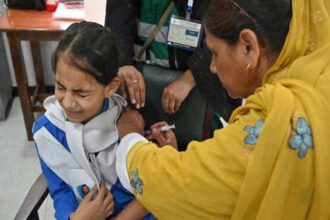A new medical study has revealed that the ongoing rise in global temperatures is contributing to an increase in various types of cancer among women, particularly breast and cervical cancer, in the Middle East and North Africa.
According to the research conducted by the American University in Cairo, although the increase in cases may seem minor for now, it signals a growing risk of cancer incidence and related deaths among women in the region.
The study highlights that climate change poses significant threats to public health. Rising temperatures, food and water scarcity, and poor air quality are not only escalating the rates of diseases but also contributing to higher mortality. Natural disasters are also negatively impacting healthcare systems and infrastructure.
Researchers analyzed cancer cases and mortality data from 1998 to 2019 across 17 countries in the Middle East and North Africa. These countries included Algeria, Bahrain, Egypt, Iran, Iraq, Jordan, Kuwait, Lebanon, Libya, Morocco, Qatar, Saudi Arabia, the United Arab Emirates, and others.
The study found that women—especially during pregnancy—are more vulnerable to climate-related health risks compared to men. Additionally, limited access to healthcare services further increases their susceptibility to diseases like cancer.
Data from the study showed that for every 1°C rise in temperature, cancer cases per 100,000 people increased from 173 to 280, while cancer-related deaths rose from 171 to 332. The most significant rise was seen in breast and cervical cancers.
Countries such as Qatar, Bahrain, Jordan, Saudi Arabia, the UAE, and Syria showed a marked increase in both cancer incidence and death rates. Researchers suggest this may be due to extreme summer heat or other yet-to-be-identified environmental factors.
Experts believe that higher temperatures could amplify the impact of carcinogenic substances and may also affect biological processes at the cellular level.
The findings of this study were published in the journal Frontiers in Public Health.














